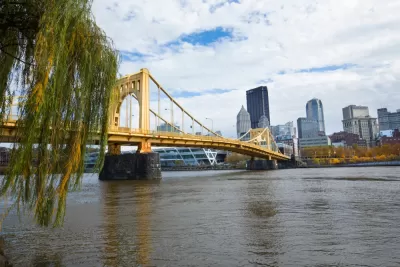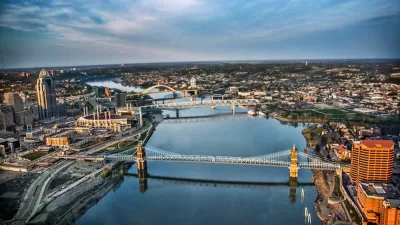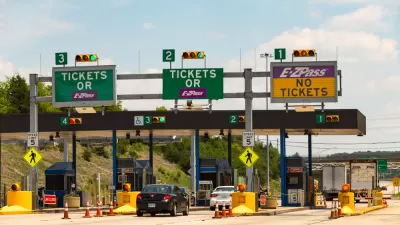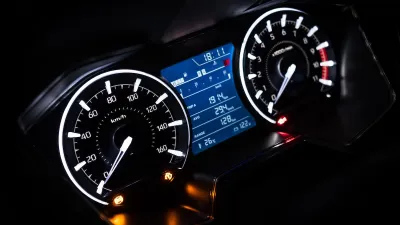With gas tax revenues projected to fall this fiscal year due to the pandemic, the Pennsylvania Department of Transportation argues it needs additional revenue to bridge its growing funding gap and repair crucial infrastructure.

The Pennsylvania Department of Transportation (PennDOT) is starting a campaign to garner support for new bridge tolls, which the department deems crucial for raising enough revenue to rebuild or upgrade nine of the state's most important bridges. "Under its Pennsylvania Pathways program to find other revenue sources for transportation projects, PennDOT announced Thursday it will prepare federal paperwork to begin charging tolls of $1 to $2." The department hopes the virtual public meetings it plans to hold will be "an opportunity to convince the public about PennDOT’s funding crisis, the importance of using tolls to fund the work, and the potential reduction in state-funded local road work if the agency doesn’t find other revenue sources," reports Ed Blazina in the Pittsburgh Post-Gazette.
With the state relying on federal and state gas taxes for 74% of its revenue, the recent drop in travel and growth of electric and fuel-efficient vehicles have led to a growing gap in funding for infrastructure projects. Tolling is an effective and increasingly popular way to replace lost revenue. "Across the country, 195 roads, 137 bridges and 15 tunnels generate about $22 billion annually through tolls." Ken McClain, director of PennDOT’s Alternative Funding Program, says the department has an "enormous responsibility" to the people who drive on the state's bridges and roads every day. "We cannot afford to let these major bridges fail," he said. "If tolling is approved at all nine sites, the funds will pay for $1.6 billion to $2.2 billion worth of work and allow the agency to use gas tax money for other projects."
FULL STORY: PennDOT begins the task of selling the importance of bridge tolls

Alabama: Trump Terminates Settlements for Black Communities Harmed By Raw Sewage
Trump deemed the landmark civil rights agreement “illegal DEI and environmental justice policy.”

Planetizen Federal Action Tracker
A weekly monitor of how Trump’s orders and actions are impacting planners and planning in America.

How Atlanta Built 7,000 Housing Units in 3 Years
The city’s comprehensive, neighborhood-focused housing strategy focuses on identifying properties and land that can be repurposed for housing and encouraging development in underserved neighborhoods.

In Both Crashes and Crime, Public Transportation is Far Safer than Driving
Contrary to popular assumptions, public transportation has far lower crash and crime rates than automobile travel. For safer communities, improve and encourage transit travel.

Report: Zoning Reforms Should Complement Nashville’s Ambitious Transit Plan
Without reform, restrictive zoning codes will limit the impact of the city’s planned transit expansion and could exclude some of the residents who depend on transit the most.

Judge Orders Release of Frozen IRA, IIJA Funding
The decision is a victory for environmental groups who charged that freezing funds for critical infrastructure and disaster response programs caused “real and irreparable harm” to communities.
Urban Design for Planners 1: Software Tools
This six-course series explores essential urban design concepts using open source software and equips planners with the tools they need to participate fully in the urban design process.
Planning for Universal Design
Learn the tools for implementing Universal Design in planning regulations.
Jessamine County Fiscal Court
Caltrans
Institute for Housing and Urban Development Studies (IHS)
City of Grandview
Harvard GSD Executive Education
Toledo-Lucas County Plan Commissions
Salt Lake City
NYU Wagner Graduate School of Public Service





























